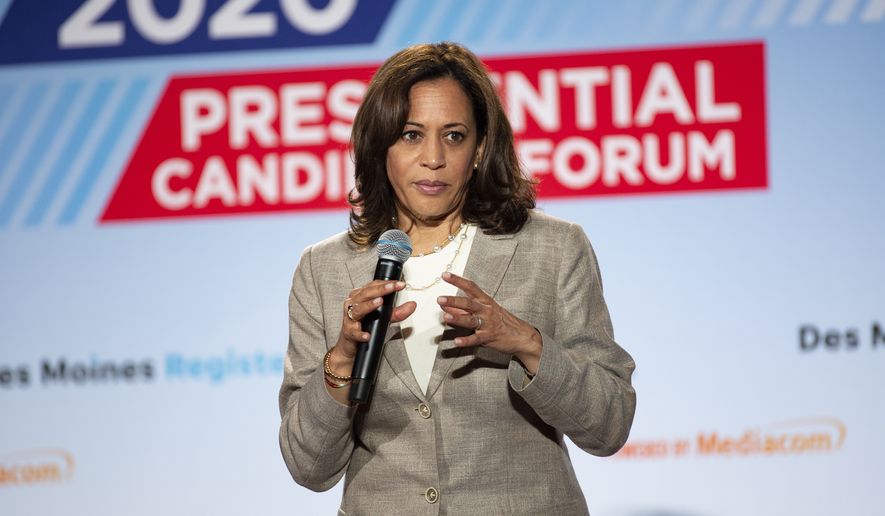Sen. Kamala D. Harris of California said Tuesday that her vision for a “Medicare for All” program wouldn’t require a tax hike on middle-class Americans, and that her push requires a transition period of more than four years.
That puts the 2020 presidential contender in line with advocates who say this sort of massive overhaul of the nation’s health care system would actually lower costs.
But it contrasts with Sen. Bernard Sanders of Vermont, who is leading the charge for Medicare for All on Capitol Hill and who says it would require tax increases.
“I am not prepared to engage in a middle-class tax hike,” Ms. Harris said in an interview with CNN Tuesday.
Asked whether people would no longer be able to carry private insurance, Ms. Harris suggested that would be the case.
“They would eventually be covered under Medicare for All, and they would still see their doctor,” she said, adding that she believes it would take longer than four-year transition period under the Sanders plan.
“I think it is going to have to take more than that, to be honest with you,” she said.
Mr. Sanders has pegged the cost of his Medicare for All plan at $30 trillion to $40 trillion over 10 years. He has said he would have to raise taxes on the middle class to pay for his bill, and that it would take four years to transition into the program.
“People who have health care under Medicare for All will have no premiums, no deductibles, no co-payments, no out-of-pocket expenses,” Mr. Sanders said in the first debate. “Yes, they will pay more in taxes but less in health care for what they get.”
Pressed on whether she believes it can be done without that sort of tax hike, Ms. Harris said, “without a middle-class tax hike, yes, yes.”
“There are ways to pay for it, also understanding the investment that we are going to be making in a way that is going to reap great benefits in terms of other costs,” she said.
• Seth McLaughlin can be reached at smclaughlin@washingtontimes.com.




Please read our comment policy before commenting.